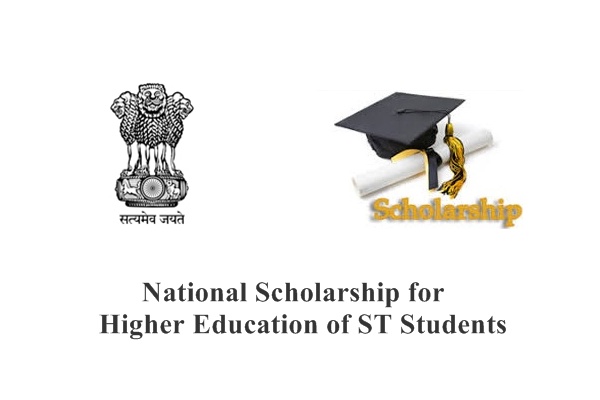National Fellowship | National Fellowship and Scholarship | National Fellowship and Scholarship for Higher Education |
National Fellowship and Scholarship
Education is the basis of both individual development and progress of the society. Recognizing the importance of inclusive education, the Government of India has initiated several measures to support the educational upliftment of marginalized communities. National Fellowship and Scholarship for Scheduled Tribe (ST) students in higher education is one such programme. This blog article attempts to provide more information about this revolutionary programme, including its goals, benefits and impact on the lives of ST students
AICTE Swanath Scholarship Registration 2023, Eligibility & Last Date

Understanding the National Fellowship and Scholarship Program
The National Fellowship and Scholarship for Higher Education of Scheduled Tribe Students is one of the Ministry of Tribal Affairs’ main initiatives. Its major objective is to provide financial aid to ST students who wish to enrol in graduate and doctoral programmes as well as other higher education programmes at various levels. Closing the achievement gap and making sure that ST communities are included and empowered via excellent education are the program’s main goals.
Objectives and Eligibility Criteria
The main goals of the programme are as follows:
- encouraging ST students to seek higher education: By paying for tuition, living expenses, books, and other incidental charges, the project supports ST students’ desire to pursue higher education.
- Ensuring social inclusion: The programme attempts to remove historical obstacles and promote social equality, empowering people and communities. This is done by aiding ST kids’ education.
To be eligible for the National Fellowship and Scholarship, students must meet the following criteria:
- Scheduled Tribe status: Applicants must possess current ST certificates issued by appropriate authorities.
- Education at the graduate level: The programme supports ST students while they pursue postgraduate and doctoral degrees in a range of fields, including the sciences, the social sciences, the humanities, engineering, and technology.
Benefits and Support Offered
The National Fellowship and Scholarship programme offers qualifying ST students a variety of advantages and supports, including:
- Financial Aid: Selected students receive financial aid to help pay for their tuition, books, living expenses, and other unforeseen costs. This assistance makes sure that ST students’ efforts to pursue higher education are not hampered by financial constraints.
- Grant-in-Aid: The initiative also offers a grant-in-aid to help research and academic pursuits, covering expenses including fieldwork, data collection, and project-related fees.
Along with financial assistance, the programme provides students with mentoring and coaching to help them succeed in their academic endeavours.Access to libraries, labs, and other academic resources is also made easier.
Application and Selection Process
The following steps are involved in the National Fellowship and Scholarship Programme application process:
The Ministry of Tribal Affairs sends a notice seeking qualified ST students to submit an application for the programme.
- Application Submission: Interested students must fill out and submit the application form by the deadline mentioned on the designated portal. They must present important documentation, including ST certificates, confirmation of academic credentials, and admittance to an accredited university.
- Evaluation and selection: The applications are evaluated by a dedicated selection committee according to merit and eligibility requirements. The committee evaluates candidates’ academic records, PhD research proposals, and other pertinent elements.
- Disbursement of Funds: After the selection procedure is finished, the programme transfers the funds to the recipients’ bank accounts.
Impact and Way Forward
For ST students and their communities, the National Fellowship and Scholarship for Higher Education of ST Students has been revolutionary. Among the significant results are:
- Increased Enrollment: The programme has made a substantial impact on the rise in the number of ST students enrolled in universities and colleges across the nation. Financial barriers have been removed, allowing more students to access high-quality education.
- Academic success: By giving ST students the support they need to further their studies, the programme has fostered academic success among ST students. Numerous programme participants have achieved academic success, holding top positions in their disciplines and gaining distinction for themselves, their communities, and the country as a whole.
- Social mobility and student empowerment have been made possible thanks in large part to the National Fellowship and Scholarship programme. The programme has given ST people the ability to break away from the cycle of poverty and marginalisation by reducing financial barriers and granting equitable possibilities for education. Since educated people can act as change agents and contribute to the advancement of their communities, this empowerment has the potential to benefit entire communities.
Moving forward, there are several ways to enhance the impact and reach of the National Fellowship and Scholarship program:
- Outreach and Awareness: Initiatives should be taken to spread word about the programme among ST communities and academic institutions. More eligible students might take advantage of the programme by organising awareness campaigns and sharing information via numerous sources.
- Strengthening Support Services: In addition to financial aid, the success of the programme can be increased by strengthening support services like mentorship, counselling, and skill development initiatives. These services can offer ST students comprehensive support, taking care of their academic, emotional, and career-related requirements.
- Collaboration with Institutions: Working together with educational organisations on the national and state levels can assist foster an environment that is favourable for ST students. This entails making certain that there is enough representation, creating a welcoming environment, and encouraging inclusive educational practises.
- Periodic Evaluation and input: Monitoring the program’s execution, effects, and beneficiary input can assist pinpoint areas that need to be improved. To make sure the programme is in line with the changing needs of ST students, stakeholders including students, academic institutions, and specialists should be included in this evaluation.
Success Stories and Testimonials
Numerous success stories from the National Fellowship and Scholarship for ST Students’ Higher Education show the program’s profound influence. Here are a few quotes from grateful parties:
According to Ramesh Kumar, a scholarship recipient, “Going to college seemed like an unachievable dream growing up in a rural tribal area due to financial limitations. My life, however, was altered by the National Fellowship and Scholarship. It gave me the money I needed to continue working towards my computer science master’s degree. I currently make a contribution to technological breakthroughs as a software programmer. In addition to empowering me, this scholarship encouraged other kids in my village to pursue their studies.
The National Fellowship and Scholarship played a significant part in my development as a research scholar, according to Dr. Priya Sharma, a Ph.D. student supported by the programme. Due to the financial support, I was able to carry out extensive fieldwork and present my study at conferences around the world. Through partnerships with renowned institutions and academics, it has given me the opportunity to support the growth of my community by implementing interventions and policies that are supported by the best available research.
Conclusion
for Higher Education of ST Students shines as a beacon of hope, providing the necessary support to ST students to pursue higher education. This program has transformed the lives of many ST people by providing them financial assistance, mentorship and mentorsNational Fellowship and Scholarship, which has helped them overcome barriers and realize their educational potential. Program outreach should be increased, support services should be improved and an inclusive educational ecosystem should be fostered. By supporting the education of ST students, we contribute to a future in which potential and opportunity are not hindered by social background, but can be fully realized, resulting in a more just and successful society.

































